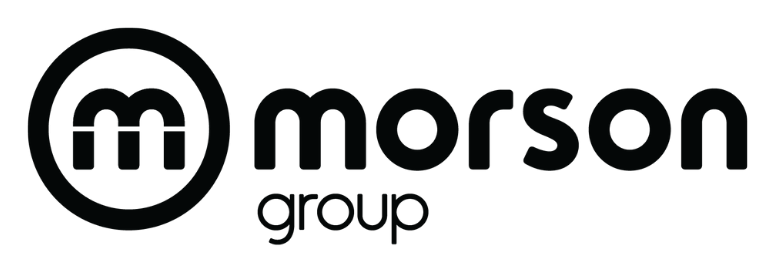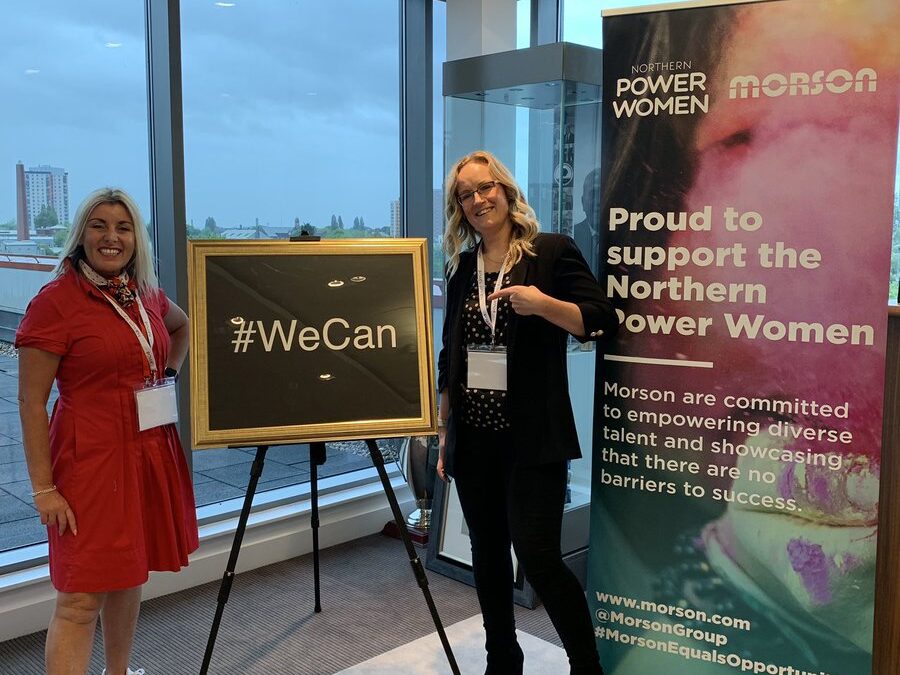
by Rebekah Lee | Apr 19, 2021 | Articles, Recruitment audit, Talent Solutions
Do you know the true extent of your contractor workforce? Have you struggled to identify and audit your contractors during the national lockdowns? Is your recruitment process overcomplicated? And are you concerned about the financial and regulatory implications associated with ‘hidden’ contractors?
Operations Support Manager Mark Goodwin and Head of Client Engagement Samantha Price discuss the benefits of undergoing a contractor audit to help streamline your business.
Businesses with expansive teams spread across multiple locations can find it a struggle to keep on top of the ins and outs of every single contractor on their books.
Typically, information on contractors isn’t captured within organisational charts or on central HR streams but, particularly in the wake of Covid-19, and with the upcoming IR35 legislation in mind, businesses have faced increased pressure to identify contractors within their workforce – and they’ve struggled.
It’s easier for HR and finance teams to track the job titles, salary bandings, working hours, geographical locations and specific needs of permanent staff – not only is it their responsibility but they hold that data in-house. But for businesses with flexible workforces – a mixture of contractors and full-time employees – there can be a lack of strategy, meaning not all recruitment processes are followed compliantly.
Plus, for those who liaise with multiple recruitment agencies to manage labour, the process can become overwhelming and noisy. It presents further risk – financially and legislatively, but also in terms of broader company processes and the candidate experience which, if poor, can both damage a brand’s reputation, visibility, approach to ED&I and commercial benefits.
To support businesses in any of these situations, we’ve launched an audit service that we are rolling out to make the recruitment experience more positive for both the candidate and the client. It’s designed to assess attitudes to recruitment, how processes are currently set up, internal and external frustrations and more. We walk ourselves through our clients’ and their candidates’ journeys, using data and qualitative learnings to draw up ways the experiences can be improved, but also assess how cost savings and time efficiencies can be made.
What we present back to the client is a report of outcomes which, if amended with some small changes, can create a new, tangible roadmap of success. Typically, an audit will reveal where efficiencies can be made in the following areas:
Spending
An audit is a deep dive into a company’s recruitment spend. We look at their entire population to find out various salaries, if consultants are being hidden as contractors but being paid a higher margin, and more.
Then we look at the commercial impact of working with multiple agencies at once. Usually, this means a company is working to varying sets of terms and mark ups, and paying different commissions, so are simply not realising best value.
Recruiting the right type of talent can also become a cost drain. Long term, a contractor will cost a business more than a full time employee, but for specialist or short-term projects contractors or even statements of work prove to deliver best value. An audit will show if a company is making the best use of talent and therefore, if the commercial benefits of an existing recruitment model are being achieved.
In partnership with our clients, we explore the numerous routes which can be taken to reduce costs, suggesting various recruitment models – a supplier rationalisation, MSP, RPO, hiring manager training or EVP overhaul or consolidation of their recruiter pool being just two options – which could be implemented to save the client what could be hundreds of thousands of pounds each year.
Legislation
Contractors in highly technical industries are subject to certain regulations, while the introduction of IR35 for the private sector will put extra responsibility on businesses to take account of their contractor workforce, assessing whether they fall in or out of scope.
Auditing can make this a more transparent element, firstly in terms of assessing who is supplying your talent; if you do not know this, you cannot be sure of compliance across your supply chain. And secondly, in terms of the candidates themselves; with responsibility falling on employers to know which of their team members are subject to IR35, an audit can help to identify those which might currently fall under the radar but who, without a change to working practices, could lead to costly fines and penalties.
As part of the audit process, we work with hiring managers to understand how much they know about legislation, detailing parts of our trail which shows the wider business is failing in its compliance. We can then feedback to clients on the ways they can upskill their team to ensure this becomes a priority, meaning that the business is futureproofed from regulatory risk.
Processes
An immediate benefit to a company of an audit is that it acts as an independent review of their wider processes, and how they perform in reality, rather than on paper.
For example, are communications processes sophisticated enough to ensure every potential contractor is informed they have not been successful in their application? This can often span to more than 12 contractors – is each receiving a timely update with enough clarity on why they did not get the role?
Additionally, is there hidden bias in the hiring process? Are the people undertaking interviews sufficiently trained to do so?
Also, are there any rogue practices hindering the efficacy of recruitment? Are managers favouring one agency over another? Is more money being paid to a single agency than another without evidence as to why?
Auditing can flag all these elements and more. And with some simple changes, the efficiency of an entire business can be improved.
Talent
Another objective of an audit might be to identify the reasons why a business is struggling to recruit either permanent staff, or contractors with niche talent sets.
Data will prove if there is a bias in a technical talent pool for contract roles, which will really hinder a recruitment campaign for a permanent role. Similarly, data will also show how simple changes – such as contributing remuneration, developing cross-sector skills insights and improving work-life balance – can transform a role from being difficult to hire to easier to fill. For example, are you paying below the average industry rate for this role compared to your competitors? Something as simple as a higher salary band for the role might attract better talent and result in a longer-term saving, as you will be able to relinquish several contractors charging a higher day rate.
Not all changes should centre on financials, though. Consider this – are you working with the right agencies to secure niche skills? If you are hiring for a specialist campaign and aren’t hitting your recruitment milestones, could the problem be a case of the agencies not having the right talent on their books? As part of your audit, we’ll examine your supply chain as well as your business, to ensure you’re working with the best.
There are two ways to work with Morson on a contractor audit; either directly through us – which is preferential for those looking to move to an MSP model with us – or via an external, Morson-approved, independent contractor. We understand how recruitment works in a way that you may not which means we’re best placed to undertake this task, but we work around you, your technology and systems, and in-line with your processes. We will anonymise all data to protect individual parties within your form and utilise your branded communications channels to fully embed within your business. That way, the resulting outcomes benefits you, and only you.
Getting your audit right can be a turning point for your business, empowering you to transform processes that make you a more attractive option for candidates, and more accountable at every level of regulation.
Get in touch today if you’d like our help to achieve it.
Contact Mark Goodwin via email or connect with him on LinkedIn here
Contact Samantha Price via email or connect with her on LinkedIn here

by Rebekah Lee | Feb 25, 2021 | Articles, Talent Brand, Talent Solutions
COVID-19 has created a candidates’ market. As engineering, manufacturing and infrastructure industries have surged in demand, businesses need immediate resource to service their increased requirements and are turning to a myriad of contingent labour and permanent staff to fill that gap.
Additionally, due to the rise in redundancies made as a direct consequence of the pandemic, many previously full-time employees are considering contracting as an alternative and more viable option than seeking out permanent roles.
In combination, these trends mean that workers have been empowered to be more selective than ever when choosing their next role – they have a wealth of opportunity in front of them; they can take the time to select a business that appeals to them and which is most in line with their values. In fact, more candidates prioritise culture over salary, with Glassdoor’s multi-country survey revealing that a compelling mission, culture and set of values are critical to attracting and retaining top talent.
As such, your employer talent brand has never been more important.
Every company has a talent brand, whether they choose to acknowledge and invest in it or not. The way we recruit and retain talent has changed significantly due to advancements in technology and the increase of communication via social media such as Facebook, Instagram, Snapchat, TikTok and Youtube, as well as career review sites such as Glassdoor, mean the communication from and the maintenance of your public-facing brand should be an essential part of your wider recruitment strategy.
According to research, nine out of ten candidates feel more inclined to apply for a role when they can see the brand is actively maintained. That’s because your brand and communication are key to demonstrating what your company offers, how you treat your people, the opportunities available to them, the investments you make in them and why candidates should choose to join you over any other. Particularly following the challenges of the pandemic, it’s more apparent than ever that this part of your business should be a priority.
There are major benefits from investing time and money into your talent brand. Research shows those with an active talent brand reduce the time and costs associated with hiring, attaining and retaining a better quality of talent and are able to better reach niche skillsets – pivotal in the highly technical industries that have experienced growth in the last 12 months.
Not every business has the resource to allocate time to this, though. If you don’t have an internal team focusing on your talent brand, you should consider outsourcing it.
Our Morson Digital Studio was established for this reason – it exists to enable organisations to stand out from their competitors, helping them to get the right talent in the door and build transformative teams by creating engaging talent brands.
The tactics required to improve your talent brand vary. It might consist of web content writing to improve your SEO rankings, or you might benefit from a dedicated social media feed that’s focused on recruitment. Perhaps you need a microsite dedicated to attracting quality candidates, while some creative video content might drive more applications for the talent you’re seeking. The best videos not only work to attract candidates, but they augment your talent brand, with Morson Digital Studio producing short, snappy videos perfect for social, through to longer-form content which immerses the viewer into your culture.
From developing bespoke websites and social media campaigns, to video production and on and offline events, Morson Digital Studio will enable you to become proactive in storytelling, cultivating and elevating your employee value proposition (EVP). We’ll promote your values and unique qualities through targeted talent brand marketing, developing multi-channel branded content designed to meet demands of prospective talent and elevate you ahead of your competitors.
We’ll work in close partnership with your internal communications teams and hiring communities, and follow these three steps:
- Discover
We’ll identify who your target candidates are, any gaps in your talent attraction strategy, and where and how you’ll engage with them in the future, to discover which platforms and tactics will best achieve the results you strive for.
We’ll overlay your insights with our own, in-house data and experience to design solutions, create concepts and form an attraction strategy, which combines not only what to say about your talent brand, but how and where you need to say it. We’ll then deliver the goods, helping you create inclusive, authentic content and, most importantly, getting that content to your target audience, via the channels most relevant to them – be it digital attraction, virtual events, social platforms, through to more traditional touchpoints such as direct mail. Once you’ve launched, we loop back to test, measure and refine.
We’ll use engagement technology to get real visibility on how engaged candidates are with the roles available and your candidate material. This will enable you to select a candidate, book interviews and place workers with greater confidence. Plus, it gives candidates a truly engaging talent experience, increasing their appetite for your organisation. Technology can also be used at the onboarding stage to create immersive materials to kick-start an exceptional new starter process.
Having a clearly defined talent brand will enable you to attract, engage and hire qualified and culturally aligned people to help drive your business forward. The experience your candidates have throughout the hiring process has a huge impact on a talent brand, and in today’s challenging and complex recruitment landscape, this is more important than ever before.
Taking action now will ensure you attract, attain and engage the industry’s leading talent and ensure that, whatever the future holds, you’ve developed a workforce that helps you gain serious traction on your competitors.

by Rebekah Lee | Jan 15, 2021 | Articles, Talent Solutions, Technology
COVID-19 and its impact on social distancing and physical meetings demanded that Morson shake up how we deliver the onboarding process for clients who wish to transfer away from their incumbent recruitment provider.
Interim Head of Implementation, Charlotte Lewis, explains how we’ve taken implementation online, creating an efficient, effective and engaging onboarding experience for our clients.
Usually, during this time in a relationship with a new client, we’d spend months working physically alongside the different teams requiring our services to hand-hold them through the process. The Coronavirus restrictions meant that wasn’t going to be possible in 2020, but our ability to adapt has revealed a new way of working, which will now create major efficiencies in our typical method and will prove useful for businesses way beyond the virus.
Early in 2020, when news of the pandemic began to emerge, we started considering how the Government’s EAST communications framework could be applied to clients who require it – but digitally. We needed to make everything we would normally do face to face as easy, attractive, social and timely as possible, using only online platforms. Our usually day-long sessions had to be more easily digestible and designed to establish partnerships that could be strong from afar, rather than in close proximity, which is what we and our clients have always been used to.
It’s something we were considering ahead of the pandemic, but it became a priority when COVID-19 hit and we were requested to deliver an online migration by a new client. We’d recently been appointed as its Managed Service Provider (MSP) for contingent labour resource, supplying specialist and niche contractors more time and cost efficiently, and the company was as keen as us to ensure the pandemic didn’t halt the transition away from their incumbent. As such, the groundwork we had already put in place to develop our digital implementation strategy came to fruition while being tested in a real life scenario.
The client team was already familiar with using online video platforms to deliver training and professional development to its global workforce, and we worked with their preferences in mind. We held online conferences, interactive workshops, seminars, forums and drop in sessions to gain all the information we normally would in face to face settings, but made the sessions shorter to avoid Zoom fatigue.
We also enabled an element of socialising online; the client’s finance, systems and operations teams had the opportunity to learn more about our MSP, meet our team members, hear about the benefits we could bring to their company and challenge us on anything that they were unsure of. At times, we had more than 70 team members actively participating in what we were offering. It provided the reassurance to both parties that, thanks to technology, we could take on the challenge lockdown presented to us and achieve brilliant results.
Typically, implementation periods take a minimum of 12 weeks and include an eight-week buffer to mitigate for the usual delays that come with running businesses. However, in this very first experience of putting our digital strategy to the test, the entire implementation process was completed on time, in less than three months – even with a pandemic rumbling along in the background.
What’s been most pleasing about this project is that we’re now able to offer a completely new service to other businesses. It’s been tried and tested and proven to be successful thanks to our agility; we were able to pivot and accommodate the client’s needs, on-demand, to enable better outcomes and increased productivity for them as a result.
We’ll now use this same process to provide other clients with an analysis of the ever-changing labour market, looking at how the economic unrest around the world might be mitigated using different recruitment models. And we’ll be able to do so without limitation, knowing that technology enables true value and benefits for our clients.
“We understand that so many of our clients bigger strategic goals are linked to talent.
Thanks to our in-depth market intelligence, vertical expertise, industry-leading technology and collaborative approach, we can support our clients businesses through these challenging market uncertainties, the diversifying of workforces, preparing for IR35, fulfilling local employment quotas, and any other tests our clients may face.”
If you would like to find out more about how we can support your business and it’s ambitions, get in touch with myself, Morson director, David Lynchehaun at david.lynchehaun@morson.com

by Rebekah Lee | Nov 27, 2020 | Articles, Morson Screening, Talent Solutions, Technology
Though the act itself was intended to better highlight the plight of victims, and ensure they were protected and given the support needed to escape this notoriously well-hidden market, it also sought to address the role that supply chains play in masking the connection between business operations and modern slavery.
As part of the regulation, there became an official obligation on commercial organisations turning over more than £36million a year to report on the steps they’re taking to eradicate modern slavery from their organisation and supply chains. When it came to recruitment, this meant looking at how we support our clients to achieve those same standards.
Prosecutions and convictions in this area are increasing; fines are being imposed on individuals found to be faking documents which make it appear they are eligible for work in the UK, despite them being found to be involved in modern slavery, and officials are clamping down on businesses that don’t make it a priority in their recruitment processes.
At the Morson Group, in order to make this area of our operations more streamlined – and in turn, pass the efficiency and increased compliance to our clients – we looked at how technology and artificial intelligence (AI) could become an everyday part of our offering when it comes to screening candidates.
Here, four of our Group experts explain how, at every level in our business, technology and AI are playing a role in supporting our clients’ modern slavery mitigation practices.
Gareth Morris, head of HSQE at the Morson Group
“My role centres on sustainability and mitigating risk. Though we are the experts in providing candidates for clients in our sectors, we need to bring the right people to our own team as a starting point, because we don’t want to inadvertently hire anyone involved in modern slavery; to do so, would destroy efforts to be compliant at every other level of the supply chain.
“So, a priority for me is ensuring we have the correct quality management procedures in place to make sure we are recruiting people who are eligible to work in the UK. We’ve overhauled our screening and onboarding processes, using the Fit for Work app (www.fitforwork.ai) to ensure selected remote workers who apply to work at the Morson Group are who they say they are, according to the legal documents they possess.
“From there, we can be confident that the teams we build can be safely involved in the supply of resources to our clients, or in purchasing goods and services that help them meet their recruitment agreements.
“Additionally, prior to approving a new supplier, we’ll use technology to review the controls which they undertake to eliminate modern slavery and human trafficking from their own operations, particularly in regard to goods imported from outside the UK and EU which are potentially more at risk of involving slavery and human trafficking.
“The detection and reporting of slavery is the responsibility of all of us – but it starts with our own team.”
Gemma Yetman, interim head of screening at Morson Screening Services
“The Modern Slavery Act is one of those things you hope you won’t have many dealings with, but which you need to be prepared for at all times. As a recruitment leader, if we don’t undertake the necessary due diligence in this area, we can incur significant fines which land on the desk of the individual recruiter who didn’t sufficiently check a candidate’s background. However, the reputational damage to our organisation would be even more significant, so we take all steps to avoid that risk.
“Day-to-day, I oversee the relationships between our clients and the wider Morson screening team. Our screening platform and associated technology is highly intelligent and is crucial to our overall vetting process of candidates. But we combine it with human intelligence, too. We make online portals available to a client’s recruitment and security teams to ensure everyone has oversight of the steps we are taking to make sure individuals are vetted in line with the Modern Slavery Act.
“Often, our screening platform combined with the expert eye of recruiters can pick up on trends that are emerging simultaneously for a group of candidates which have all come to us from the same company, at the same time. We use digital tools to explore their background – who they are, where they’re from, where they live in the UK, and whether they have the right legal documents to work in this country – and regularly see large groups trigger alarm bells that indicate there’s an issue. From there, it’s our job to speak to the client and flag that they might not be a reliable candidate and find alternative, compliant resource.”
Charlotte Lewis, interim head of implementation at the Morson Group and head of technology – Vencuro
“As a business, we regularly draw on data analysis and AI technologies to create sophisticated vendor management solutions which improve compliance and processes within our own and our clients’ supply chains. Arming Hiring Managers with such intelligence and capability creates a powerful process to deliver screening best practice by reminding teams of their responsibility and key protocols. We all have a role to play and as an added value benefit, we provide support documents which help educate and guide our clients on how to spot the signs of modern slavery.
“Vencuro, our in-house vendor procurement platform, helps us identify a client’s specific operational pain points, which we then make the driving force behind our service for them. If they tell us modern slavery is a high risk area for them, we’ll implement the right suites of software to give a client complete visibility of candidates as they go through the recruitment process, and beyond when they are contracted. At any point, they will be able to use the system to check where a candidate is, explore their background and ensure they have passed the relevant tests to maintain compliance with the Modern Slavery Act.
“We’ve evolved from supplying clients with very simplistic tools to monitor this complex area of law, to being able to share intelligent platforms which have become integral to their business employing lawful individuals.”
Stephen Reilly, customer director & co-founder of facecheck.ai (Fit for Work app)
“We’re really proud that, as an organisation, we can use AI and other technologies to make screening and particular health and safety requirements a forward-thinking, intelligent process. Each customer is different, so we configure our digital products to ensure they meet individual needs and make complying with the Modern Slavery Act a more efficient process.
“Our Fit for Work app uses facial recognition technology to ensure that the person who was onboarded during the recruitment process is the person who’s attending site, or turning up to an office, on any given day. For customers who think their remote teams might be unreliable and have the potential to substitute other individuals into their role, we can undertake daily or even hourly checks to match a worker’s face with the image on their recruitment profile and the headshot on their passport – which will then declare whether or not a person is eligible to work in this country.
“As well as helping a company remain above board from a compliance perspective, it also has other benefits. It saves costs where a client might otherwise have no alternative other than to hire a member of staff to carry out regular identity checks, across multiple sites. It can be a more commercially viable solution in that sense, and also more logistically sensical when you consider, for example, lone workers who are subject to unusual working schedules. Managers can’t always spend their working day checking in on a workforce, so this technology also frees up vast amounts of internal resource.”
To find out more about how we can help support your organisation’s modern slavery mitigation practices with technology and AI, please contact Morson director, David Lynchehaun David.Lynchehaun@morson.com





